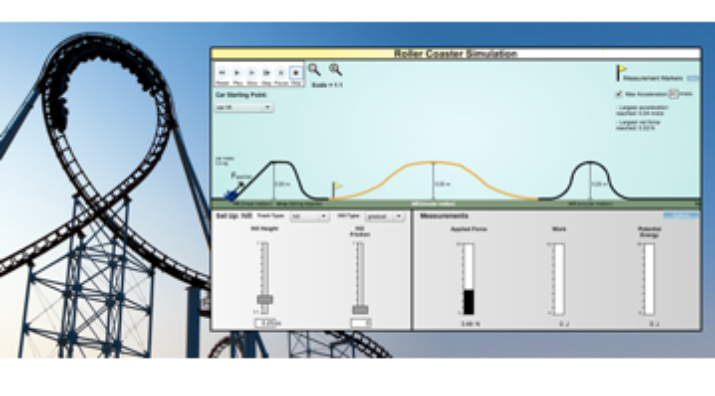CAST, Inc.
Universal Design for Learning Literacy in Physics ...

Educators often take advantage of educational technologies as they make the shifts in instruction, teacher roles, and learning experiences that next gen learning requires. Technology should not lead the design of learning, but when educators use it to personalize and enrich learning, it has the potential to accelerate mastery of critical content and skills by all students.
Real-life applications of course content resonate with students, creating deeper learning opportunities. The CoMPASS-Physics learning environment invites students to think like scientists and engineers when building an amusement park roller coaster over a 12-16 week period. Students work in teams in a technology-rich, interactive learning environment to accomplish the following:
Students write a roller coaster design proposal for their final project, reasoning like scientists and engineers as they argue for their plan’s safety, fun, and efficiency, and support their design decisions with physics explanations derived from collected data and information.
Common Core State Standards: English Language Arts Standards - Science and Technical Subjects:
Teacher Comments
"Overall I appreciate the rigor of the curriculum. Real science terms are used for real science work. The school [where] I teach [has] a gifted and talented curriculum. The students could breeze through two to three chapters of the textbook a day. But with this they had to stop, think, and work in groups."
"Students really developed science process skills—making a hypothesis, making observations, recording data, analyzing the information, drawing conclusions. Most student developed good working knowledge of experiments, setting up the last few experiments mostly on their own. I helped them a lot less than I did at the beginning."
Students’ pre- and post-tests showed the following significant gains:
With NGLC funding, the project team enhanced CoMPASS-Physics and created supporting training materials and programs. Approximately 1,200 sixth-eighth grade students used CoMPASS-Physics during the project.
Partners: